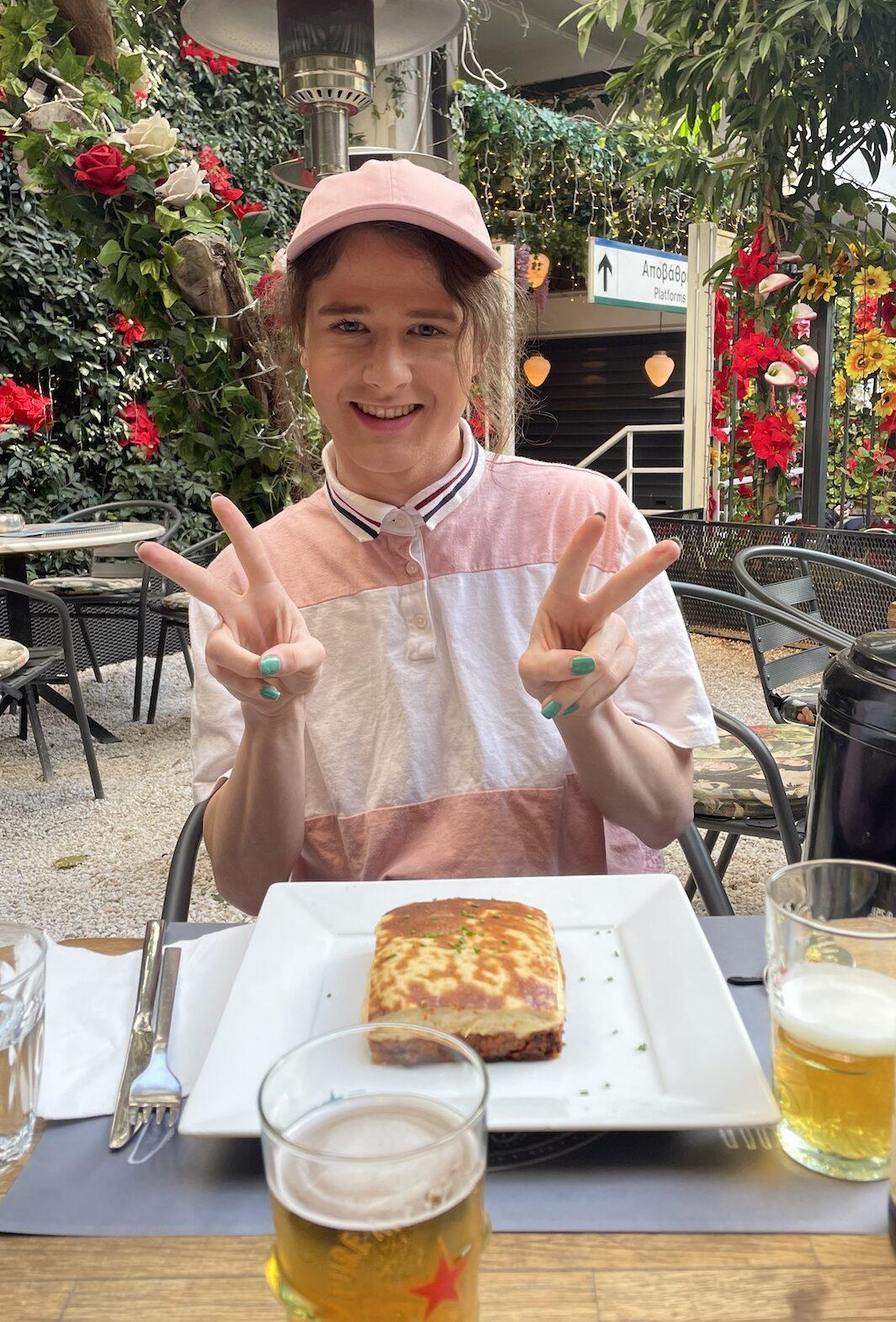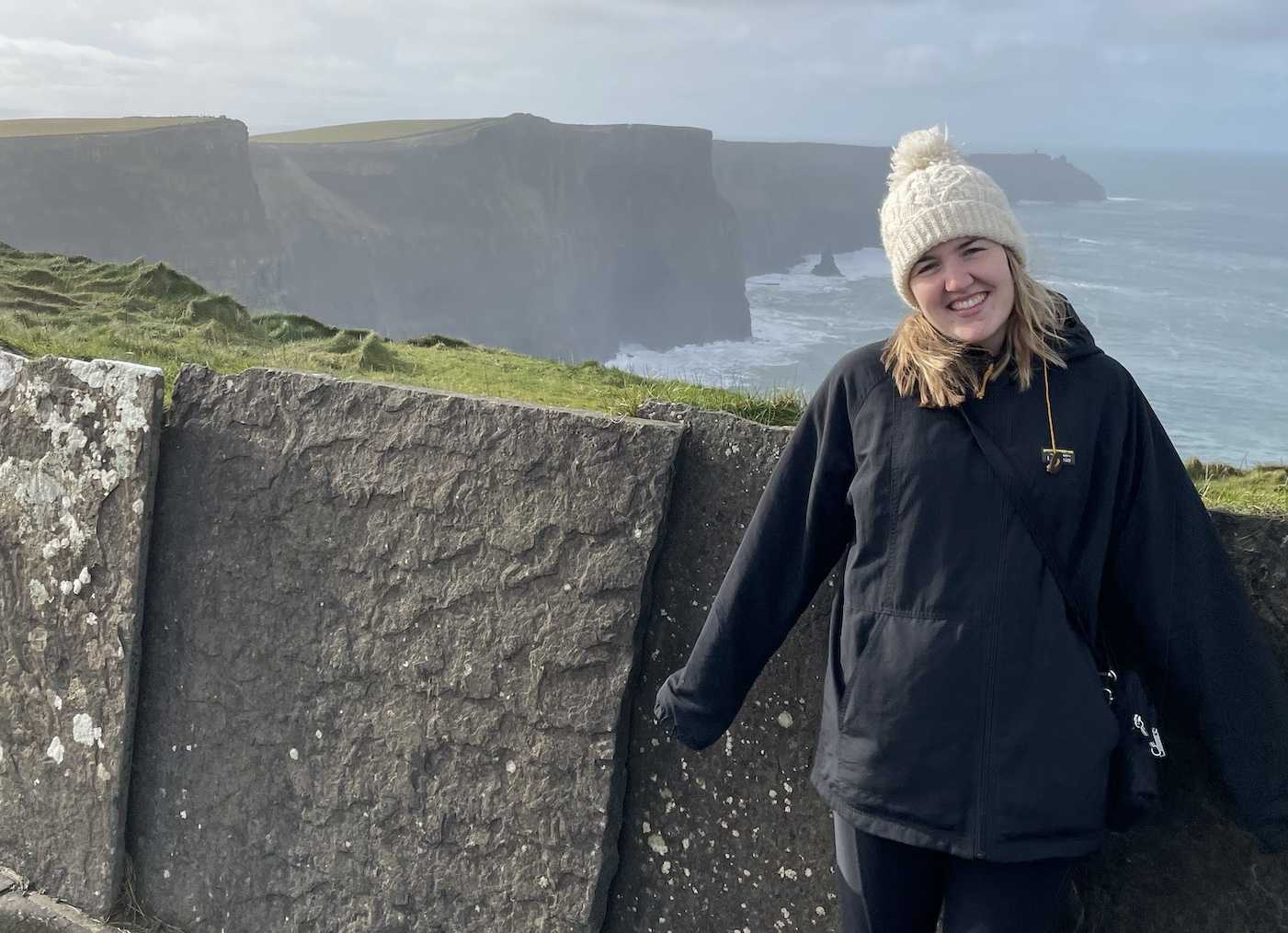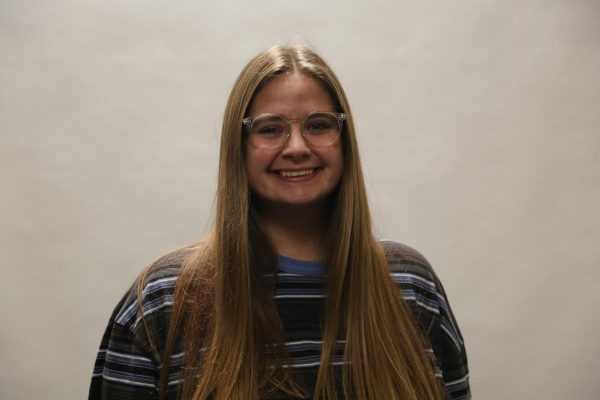When Jocelyn Brad ’24 was deciding where to study abroad during the spring 2023 semester, she asked herself, “Where can I be the most safe?”
While many students may have that same question, for Brad, it was tied specifically to her identity as a bisexual trans woman.
Brad said navigating her LGBTQIA+ identities abroad was a constant during her semester in a French immersion program in Paris through IES Abroad. For one, she got a lot of confused looks.
“They look at you and try to figure out, ‘How do I even address this person?’” Brad said. “Some days, honestly, I was too tired to care.”
It’s unclear how many students who identify as LGBTQ+ study abroad every year. Universities and study abroad organizations do not typically collect data on the sexual orientations of students who participate in their programs. But organizations like NAFSA: Association of International Educators, which serves international educators worldwide, point to the uptick of U.S. students who identify as LGBTQ+ as reason to assume the number of LGBTQ+ students abroad is up as well.

PHOTO COURTESY OF JOCELYN BRAD ’24
Safety for LGBTQ+ students abroad
Discussing identity abroad is part of the health and safety meetings all St. Joe’s students going abroad must attend before they go abroad, no matter the program length, said Mary Migliozzi, the newly appointed assistant director for study abroad and health & safety in the Center for International Programs (CIP).
“We emphasize the need to reflect in advance on your identities, visible and invisible, as well as your boundaries,” Migliozzi wrote in response to written questions from The Hawk. “What parts of your identities are visible? Which parts are not? How do they affect how people perceive you and how you perceive others?”
For LGBTQ+ students, the conversations surrounding safety, language and support can have different implications than for their non-LGBTQ+ peers.
Thomas Kesaris, CIP director, said conversations have changed since he started in 2001.
“A greater emphasis has been made to make sure our LGBTQ+ students are prepared for their study abroad experience by providing them with appropriate resources to research the destination/country they are planning to travel to,” Kesaris wrote in response to questions from The Hawk.
When asked what resources the CIP provides to LGBTQ+ students going abroad, Migliozzi wrote that staff can help students research their host countries.
Allyn Nobles, associate director of the Center for Global Education at the University of San Francisco, a Jesuit institution, said his office ensures that USF trans students’ passports align with their gender identities, and those who identify as LGBTQ+ are traveling to safe countries and are aware of safety issues. For example, USF faculty-led programs to Kenya and to Trinidad and Tobago have brought up safety concerns for LGBTQ+ students.
“The reality of these places is that being gay is not acceptable,” Nobles said. “So we just have to remind them about the realities of certain regions and countries [where] it’s not good to be out.”
Brad said her LGBTQ+ identity forced her to narrow down the choices of possible destinations. She crossed Senegal in Africa off her list.
“A lot of the laws on homosexuality and transgender people really gave me the impression that I probably don’t know if I could even get into the country,” Brad said.
If an LGBTQ+ student chooses to travel to a potentially dangerous climate, Migliozzi said the CIP can make sure students are aware of risks and are equipped to make the best decisions possible for their safety with respect to their identities. They can also put students in touch with resources in their host country.
“Only the student can decide what destination and approach to identity while abroad is best for them, but we can and do seek to get them what they need to make those decisions,” Migliozzi wrote.
Language challenges
Another challenge of studying abroad for LGBTQ+ students, especially in a country where a gendered language like French, Spanish or Italian is spoken, is navigating pronouns or how people address them.
A gendered language has a binary grammar system, meaning it ascribes words and some vowels as masculine and feminine, with no naturally gender-inclusive options. English is not a gendered language as it does not assign words in the language as masculine or feminine.
For nonbinary and gender nonconforming people, navigating pronouns and gender identity in a gendered language can definitely be a challenge, said Elaine Shenk, Ph.D., professor of Spanish and linguistics.
When people in France addressed Brad, they often expressed uncertainty as to whether they should refer to her as “madame” (mrs.) or “monsieur” (sir), she said. And explaining this in her second language presented as a challenge she said she wasn’t prepared for.
“How do I even explain my identity in a language that’s not my primary language? That, for me, was very challenging,” Brad said. “Because, already, just being a transgender woman, I have to explain myself in English a lot of the time.”
In French and Spanish, gender-inclusive pronouns like “iel” and “elle” are options, but may not be accepted, understood or used by everyone, Shenk said. Because of that, students opting for gender-inclusive language risk being corrected or misunderstood by native speakers.
“If that person goes abroad and is using adjectives that don’t match how people perceive them, they will get judgment about their Spanish,” Shenk said.
As a language educator teaching an evolving language, gender is always a dilemma in teaching, Shenk said.
“You want a student to feel prepared linguistically to function well, which might be in opposition to feeling comfortable with inclusive language,” Shenk said.
Support
For USF students who go abroad, Nobles said the Center for Global Education promotes the Rainbow Scholarship from NAFSA, which gives LGBTQ+ undergraduate students the opportunity to apply for funds to study abroad.
Additionally, Nobles said USF has been partnering with IES Abroad for several years, with their partnership including not only program opportunities but on-the-ground support in host countries for students to access.
Brad was able to get one free therapy session through IES, which sponsored her program, but after that, the services she needed were behind a paywall. St. Joe’s Counseling and Psychological Services (CAPS) wasn’t an option, either. While free, it is only available to students who are residing in Pennsylvania at the time of service.
Brad said she wishes that the CIP had been able to offer some form of on-the-ground support in Paris.
Community
Nobles, who is gay and spent time traveling around the world, said finding queer communities and gay-friendly areas in your host country is important.
That helped Sara Melley ’23 M.S. ’25, who is a lesbian and studied abroad in Cork, Ireland during the spring 2022 semester. Melley said going abroad allowed her to find a queer community.

PHOTO COURTESY OF SARA MELLEY ’23, M.S. ’25
“I was really able to lean into queer culture in a way that I hadn’t before in Philly,” Melley said. “And I think that definitely brought that back with me.”
Brad said that is also what helped her.
“The big thing for me was finding the spaces that existed in Paris for queer people because queer people are everywhere, wherever you go, even in places that might not seem very queer-affirming or might not be queer-affirming,” Brad said. “Queer people exist. It’s just part of the human existence.”
This is the seventh story in a series by Allie Miller ’24 about issues that impact LGBTQIA+ people at St. Joe’s and in the Philadelphia area.















































